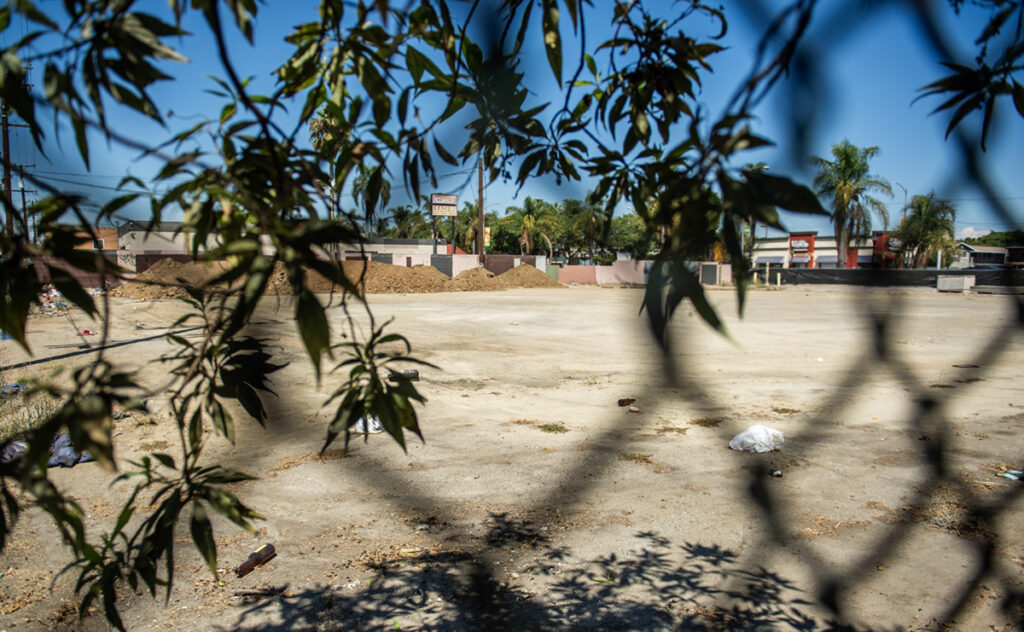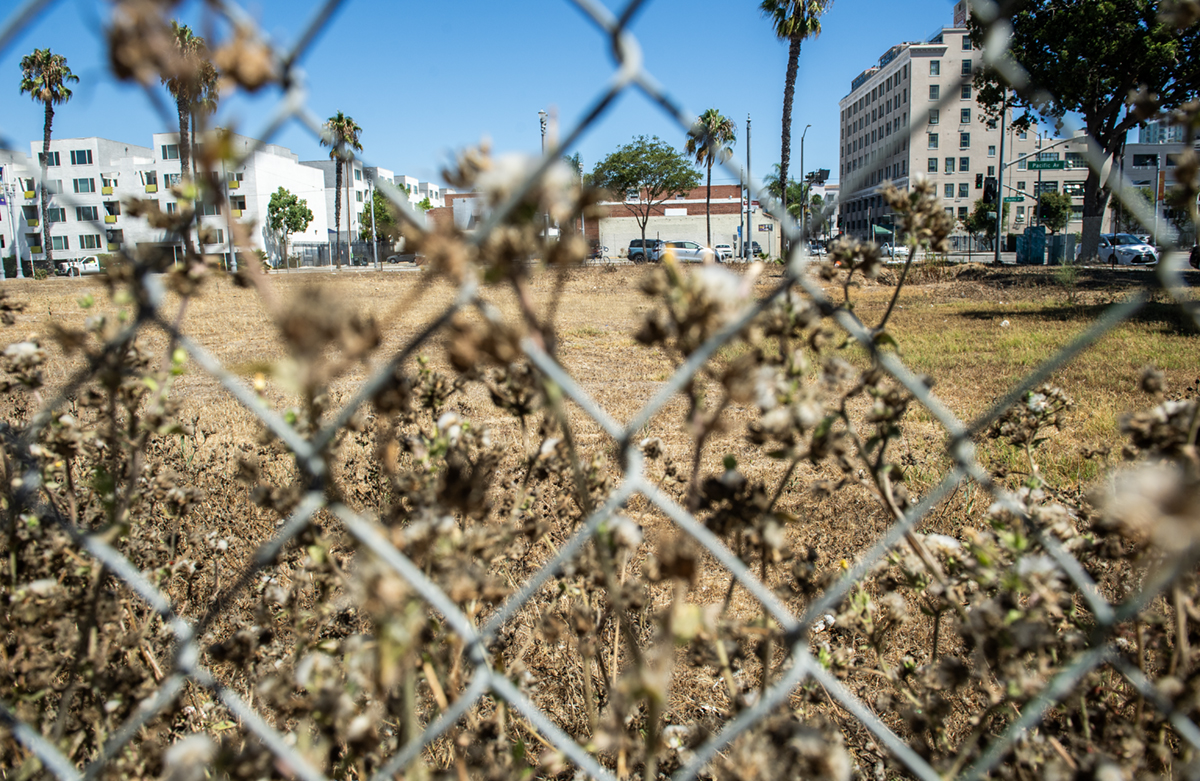For at least three years, the empty lot across from Arthur Khaghatryan’s pawn shop has been a sea of weeds.
“I wish there was a building there,” Khaghatryan said. “It would be better for the whole neighborhood.”
The city knows it’s a problem. The owner of the lot at Long Beach Boulevard and 12th Street has been cited 24 times since 2018, with 8 citations for weeds and/or debris and 7 for graffiti.
But it hasn’t fixed the issue here, or at 163 vacant lots in Long Beach that have failed to meet at least one city-imposed standard for maintaining the property since 2018.
In what may be the most extreme cases, two properties on Pacific Coast Highway — one near Pacific Avenue and another near Linden Avenue — have, respectively, racked up 93 and 87 violations, according to city data.
So Long Beach officials are experimenting with a new approach.
In August, the Community Development Department issued a request for proposal, asking vendors to submit plans for a pilot program to remedy problem properties.
One winning bidder will receive $75,000 to implement their proposed solution at a single vacant lot starting in February and lasting for up to 12 months.
The request for proposals spelled out a few examples vendors could try. They include, but are not limited to:
- Putting up visual art installations to enhance the space and deter graffiti
- Installing mobile infrastructure, such as solar lights, temporary fencing or planters to activate lots without permanent construction
- Partnering with local organizations to provide job training, garden maintenance or youth engagement on repurposed lots
- Putting in QR code signage for reporting dumping, overgrowth or encampments
- Creating interactive maps or mobile tools for residents to view lot status, submit feedback and track response from the city
These suggestions came from a city-run workshop in July, during which a mix of city employees and neighbors discussed ways to reduce the number of vacant lots.
Residents reported that they often don’t know who owns the lots and what maintenance requirements the city enforces. Residents also said, according to the request for proposal, that community organizations are interested in fixing up the empty lots, but often don’t know who to contact in the city to start that process.
The city is also exploring tougher penalties to spur negligent property owners into maintaining lots.

In October, a staff report on a City Council item labeled the city’s municipal code as vastly outdated and “insufficient.” Staff also wrote that the lack of enforcement has led to a rise in “nuisance and criminal activity” along with “dozens of fires” in recent years.
“It’s critical” that property owners keep up their lots “so that they don’t contribute to blight or create safety concerns,” District 5 Councilmember Megan Kerr said at the time.
In a memo last May, Director of Community Development Christopher Koontz wrote that his department will recommend “increasing fines for third citations from $500 to between $1,300 and $2,500 depending on the type of violation.”
Other recommended changes to the city’s municipal code include recording violations against title, creating a specific municipal code for owners to keep their property safe and secure and “expediting the city’s ability to secure or demolish a property if the property owner fails to do so.”
But business owners operating near vacant lots often don’t have time to wait for legislative solutions.
Denise Maldonado, owner of Confidential Coffee on West Sixth Street near Pacific Avenue, said she avoids walking by the fenced-off, 46,500-square-foot stretch of empty land around the corner from her coffee shop.
After at least a half-dozen break-ins at her business over the past few years, Maldonado opted for a roll-down metal gate to cover her storefront at night.
Since installing the security measure, “things have been way better,” Maldonado said.
“I can actually sleep at night without stressing about somebody trying to break in again,” Maldonado said.

